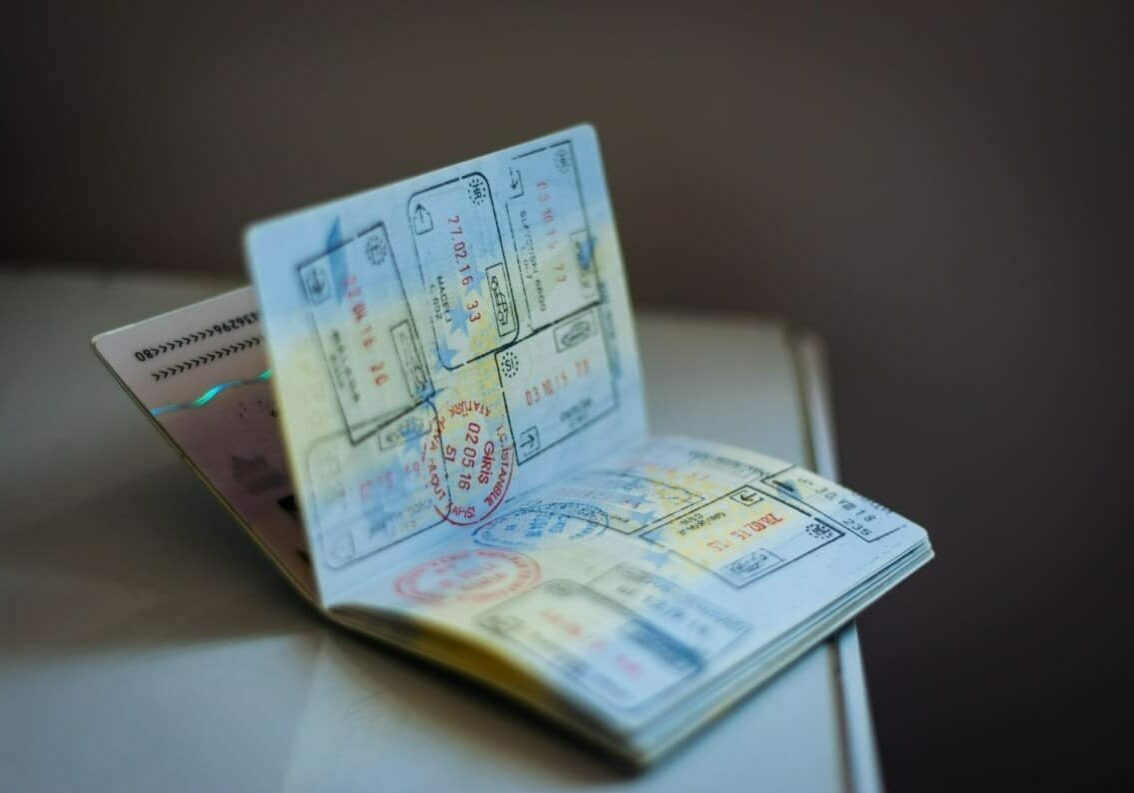People often think of residence and domicile as the same, but they have different meanings, particularly in regard to tax law. Residence is where you live temporarily or for part of the year, and it impacts taxes on income earned in that location. Domicile is your permanent home and affects taxes on your global income and inheritance.
This article will walk you through everything you need to know about domicile vs residence. We will focus on the legal definitions of these terms as well as how each influences taxes. We will cover:
- Understanding Domicile and Residence Differences
- What is domicile?
- What is residence?
- Key Differences Between Domicile and Residence
- Taxes for Domiciled People
- Establishing a New US Domicile
- Challenges of Establishing a Domicile
- Physical Residency vs Tax Residency
- What is Non Domicile status?
- Countries with Non-Domicile Programs
- Where to Domicile
Understanding Domicile and Residence Differences
The terms “Domicile” and “Residence” are terms often interchanged and mistaken as the same. However, the two have different legal definitions and implications. “Domicile” is your “permanent home,” while “Residence” is your “temporary home.”
- Residency is a loose term for where someone chooses to live. You can easily have multiple countries of residence.
- Domicile is more permanent and is effectively somebody’s home base. Once you move into a jurisdiction and take steps to establish your domicile in one country, that state becomes your tax jurisdiction.
Let’s look at an easier-to-understand example to help us understand the substantial connection and difference between the two. If you are a student and attend university or college, you may have to live in the college dorm for a few years. The college dorm is one of your residences. The home you are leaving to study in college is your domicile home.
What is domicile?
As highlighted, domicile is the legal definition of the place or country where you have a lawful and official permanent home. It is your main residence, and you may choose to reside there after some time. Domicile status means an individual has a domicile in their country where they have a permanent or primary home. Nobody can have more than one domicile home. This status also makes you a part of specific laws undertaken by your country’s government authority.
Domicile residence rules vary by country, but they mainly depend on how long you stay. In some places, living there for 183 days can qualify as your primary residence. If you have multiple homes, determining domicile can be complicated. It’s not just about where you live but where you intend to stay long-term. Authorities, not individuals, make this decision, often for tax purposes. Therefore, changing domicile requires legal steps and cutting ties with your previous residence.
What is residence?
A residence is legally termed as a temporary home where you reside for a certain period. It is said that you can have more than one residence but have only one domicile home. The key difference between residence and having domicile is a person’s intent to return to their primary home.
The requirement to be a lawful resident in a country or state is to live there for at least 183 days per tax year or visit the place frequently with the intention of staying. This can deem you as a resident for tax purposes. Once you have a legal residence, you can live, study, work, or establish a business in the country. Individuals can gain residency through various means such as work permits, family, or through residency by investment programs.
Key Differences Between Domicile and Residence
Taxes for Domiciled People
It is important to determine and state your domicile for tax purposes. These are the three main types of tax liabilities involved.
Personal Income Tax
Depending on local tax laws, your residence can determine whether you pay taxes on your global income. Some countries tax residents on all income worldwide, while others only tax income earned within their borders.
Personal income tax is a tax on the money you earn, including salaries, business profits, or investments. Tax rules may vary if your domicile and residence are in different countries. Countries with residency-based taxation only tax residents, while those with territorial or citizenship-based taxation may tax income earned within the country or by citizens regardless of where they live.
Capital Gains Tax
Owning financial assets or property abroad can affect your state income taxes, depending on your domicile and residence. Many countries impose territorial taxation, meaning you may owe taxes where the income is earned. Capital gains tax is a tax on profits from selling assets like real estate, stocks, or businesses. Depending on local laws, you may need to pay capital gains tax in your country of residence or domicile, even if the assets are in another country.
Inheritance Tax
Determining Your State Taxes
State Income Tax: As mentioned above, depending on the state’s tax framework, domicile states and taxing authorities may tax you on your worldwide income. Some legal constructs require individuals to pay taxes and undertake all tax liability proposed by the state government whether they live in the country or maintain a foreign residence.
Death Taxes: The primary location where death taxes are imposed is your country of domicile. If you have yet to cut ties with your previous domicile property fully, you may face significant tax liabilities on both properties.
Establishing a New Domicile
Individuals may choose to change their domicile for many reasons. If you wish to establish a new domicile, you must undertake the following steps to do so lawfully:
- Change your driver’s license details and get it authorized by your new domicile state.
- Update the address of the automobile registration.
- Update your voter’s registration.
- Inform your bank of your new primary address and locate your new local branch.
- Show the last state income tax and tax return that you paid for, establishing transparency for tax purposes.
Change your domicile
The two primary conditions required to change domicile are:
- You are leaving the country where you are domiciled and settling in a different country permanently
- Firm proof that establishes your intention of staying in the new domicile home for an indefinite period
There can be various other reasons for a person to change their domicile, but the points mentioned above are the two primary reasons an individual can change their domicile.
Challenges of Establishing a Domicile
Physical Residency vs Tax Residency
Physical residency refers to the physical location where an individual resides. It’s determined by how much time an individual spends in a specific place and is typically defined by immigration laws.
Tax residency, on the other hand, is the status that determines where a person is liable to pay taxes based on where they spend a substantial amount of time, usually over 183 days in a calendar year. Therefore, tax residency depends on factors including:
- Number of days spent in the country
- Income earned in the country
- Assets held in the country
Individuals may be considered tax residents even if they don’t physically reside there and be subject to paying income, capital gains, property, or other taxes based on their circumstances.
What is Non Domicile status?
Non-domicile (non-dom) status refers to a tax classification where an individual resides in a country but is not legally considered domiciled there. This status allows individuals to pay taxes only on income earned within the country or remitted there, while foreign income if kept outside the country, may remain untaxed. This tax setup is especially attractive for high-net-worth individuals who want to reside in these countries while optimizing their tax exposure.
Countries with Non-Domicile Programs
Malta Global Residence Program (GRP)
Malta’s tax benefits for non-domiciled residents are offered through the Global Residence Program (GRP), also known as the Resident Non-Domiciled Tax Scheme. While not officially labeled a “Non-Dom” program, it works similarly by taxing foreign residents only on income brought into Malta, with any foreign-sourced income remaining abroad exempt from local taxes. This program requires a minimum annual tax of approximately €15,000 on remitted income and includes residency requirements, like maintaining a property in Malta.
Greece Non-Dom Program
Greece also offers a Non-Dom program targeting wealthy individuals and retirees to draw foreign capital into the country. Under this scheme, approved applicants can pay a flat tax of €100,000 per year on their worldwide income, regardless of the total amount, in exchange for not being taxed further on foreign earnings. Non-Doms in Greece must either invest at least €500,000 in the Greek economy, such as in real estate or businesses or show significant financial assets abroad. This program is also available to retired foreigners with substantial pensions. The country also has the Greece Golden Visa, a residency by investment program that allows people to gain residency in exchange for an investment.
Spain’s Beckham Law
Spain’s Beckham Law offers tax benefits for foreign workers, particularly high earners like athletes. Under this law, eligible individuals can be taxed as non-residents, meaning they only pay tax on their Spanish income at a flat rate of 24%. This is a significant advantage over the higher rates that Spanish residents face, and it allows individuals to avoid taxes on their worldwide income. The Beckham Law is an attractive option for foreigners moving to Spain, as it provides substantial tax savings while working in the country.
Where to Domicile
Many countries offer citizenship by investment programs that allow individuals to change domicile, providing a pathway to residency and citizenship. These programs often have favorable tax regimes, making them attractive for investors seeking global mobility and financial benefits.
 Antigua and Barbuda
Antigua and Barbuda
Antigua and Barbuda’s citizenship by investment program grants citizenship within six months through a donation of $230,000 or a real estate investment of $300,000. Successful applicants and their families gain visa-free access to over 150 countries, including the Schengen Area and the UK. This program is ideal for investors looking to get fast track to a second passport with significant travel benefits.
 Dominica
Dominica
Dominica’s Citizenship by investment program is renowned for its affordability and efficiency, providing citizenship in six to nine months. The minimum investment requirement is either a $200,000 donation or a $200,000 real estate purchase. Citizens enjoy visa-free travel to more than 140 destinations, including the Schengen Area, making it a practical and cost-effective choice for global mobility.
 Grenada
Grenada
Grenada’s CBI program stands out with its access to over 140 visa-free destinations, including China, making it particularly attractive for businesspeople. Investors can acquire citizenship in nine months through a $235,000 donation or a $270,000 real estate investment. Grenada’s program is especially valued for its unique international travel benefits and stable economic opportunities.
 Malta
Malta
Malta’s citizenship by investment program is among the most prestigious European CBI programs, granting citizenship in 12 to 36 months. Investors must commit to a €600,000 donation and a €700,000 real estate purchase. Successful applicants gain visa-free access to 180+ countries, including all Schengen Area nations, the UK, and the US for business visas. This program is ideal for high-net-worth individuals seeking global opportunities and EU access.
 St. Kitts and Nevis
St. Kitts and Nevis
St. Kitts and Nevis’ citizenship by investment program delivers citizenship within 12 months. The investment options include a $250,000 donation or a $400,000 real estate purchase. With visa-free travel to over 150 countries, including the Schengen Area and the UK, this program is popular among those seeking a reliable and well-established route to a second passport.
 Turkey
Turkey
Turkey’s CBI program is known for its fast processing, offering citizenship in just three to six months. Investors must purchase real estate worth at least $400,000 to qualify. Successful applicants gain visa-free access to 110+ countries, including Japan and the Schengen Area. Turkey’s program is compelling for investors seeking strategic global mobility and fast results.
 Vanuatu
Vanuatu
Vanuatu’s CBI program provides the fastest route to citizenship, with processing completed in as little as 60 days. The minimum investment is a $130,000 donation. Citizens enjoy visa-free travel to 130+ destinations, including the Schengen Area, the UK, and Pacific nations. This program appeals to those who want a swift and straightforward second passport.
 St. Lucia
St. Lucia
St. Lucia’s citizenship by investment program offers a balanced and affordable scheme, granting citizenship in 10 to 12 months. Applicants can choose between a $240,000 donation or a $300,000 real estate investment. The program provides access to over 145 visa-free destinations, including the Schengen Area and the UK, making it a competitive option for investors seeking global travel benefits.

Frequently Asked Questions about Domicile versus Residence
What's the legal definition of domicile?
The legal construct of domicile is the primary home that you declare in legal documents for tax purposes, voting, bank, registering an automobile or pet, and receiving social security. You can have more than one residence but only one domicile.
Is your present abode your residence or domicile?
Your present abode is where you currently live, but it may not necessarily be your legal residence or domicile. Residence is where you live for an extended period, while domicile is your permanent home with legal ties. You can have multiple residences but only one domicile at a time.
What's the US difference between domicile and residency?
The main difference between domicile and residency in the U.S. is permanence. Residency refers to where a person lives temporarily, while domicile is their permanent legal home. Domicile determines tax obligations and legal matters, whereas residency can change frequently without affecting legal status.
Can I claim residency in another country?
Yes, you can claim residency in another country by meeting its legal requirements, such as obtaining a visa, work permit, or residency permit. Some countries offer residency by investment, digital nomad visas, or long-term stay options. Residency rules vary, so check tax obligations and minimum stay requirements before applying.
Can a person have two domiciles?
No, a person can only have one domicile.
How to acquire a Domicile Certificate?
You can acquire a Domicile Certificate or a Certificate of Residence based on the state laws and policies. For example, in the US, you must apply for a Certificate of Residence if you are a resident and have a taxation agreement, among several other procedures.
What is the difference between domicile and residence for tax purposes?
For tax purposes, residence refers to where you live temporarily or for part of the year and determines tax on local income. Domicile is your permanent home with long-term ties, affecting taxation on global income, assets, and inheritance. Residence is usually easier to change, while domicile often reflects deeper connections to a specific place.
How do you prove domicile vs. residence for tax residency?
To prove residence, you typically provide evidence like utility bills, rental agreements, or local tax filings showing where you live. To prove domicile, you need documents showing long-term ties, such as your birthplace, family connections, or ownership of a permanent home. Domicile reflects deeper, enduring connections than residence.
What factors determine domicile vs. residence?
Domicile refers to your permanent home, determined by your intent to remain there indefinitely and your connection to the place. It doesn’t change unless you actively establish a new domicile. Residence refers to where you physically live, even temporarily, and can change based on where you are currently located.
Can you have no residency?
No, it is not possible to have no residency. Everyone is considered a resident somewhere based on their physical presence, legal ties, or obligations, even if they lack formal or permanent legal residency in a specific country.



